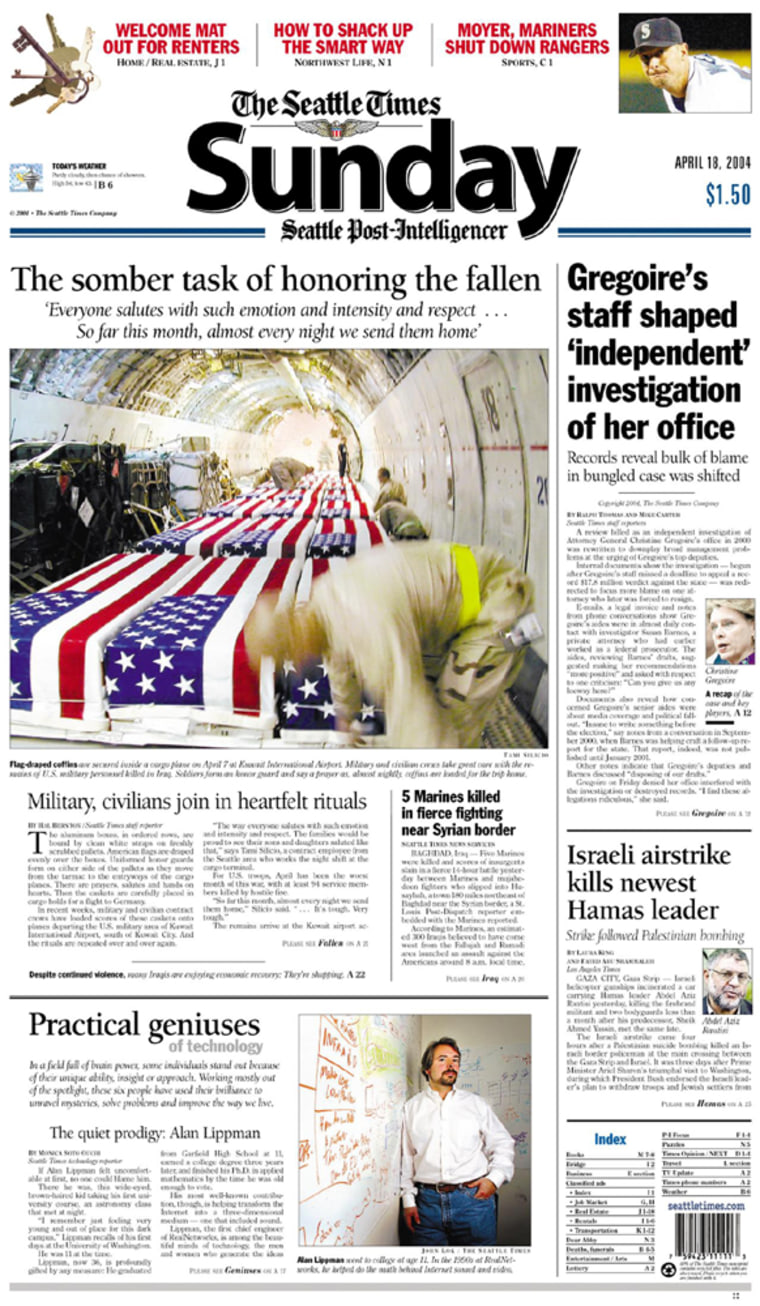President Bush considers the release of photographs of flag-draped military coffins a reminder of the fallen troops’ sacrifice but believes family privacy should be respected, the White House said Friday.
Defense Department officials said the photos, issued last week and posted on an Internet site, should not have been made public under a policy prohibiting media coverage of human remains. Some activists argue that the photos, which were released last week, underscore the war’s human cost.
“America knows full well that our men and women are serving and serving brilliantly both in Iraq and around the world. ... America is aware this is a war against terrorism,” said Trent Duffy, a spokesman for Bush. But, he said, “the message is [that] the sensitivity and privacy of families of the fallen must be the first priority.”
The photographs were released to Russ Kick, a First Amendment activist who had filed a request under the Freedom of Information Act.
Kick posted dozens of photographs of U.S. war dead arriving at the nation’s largest military mortuary at Dover Air Force Base, prompting the Defense Department to bar further release of the photographs to media outlets Thursday.
Lt. Col. Gary Keck, a spokesman for the Defense Department, said the release of the photographs appeared to be in conflict with policy.
“They’re not happy with the release of the photos,” said Col. Jon Anderson, a spokesman for the Dover base.
Duffy said he did not know whether Bush had personally weighed in on the Defense Department’s move to overturn the base’s decision or whether Bush considered the release of the photos an affront to the families.
Many photos misidentified
The photos were taken at the Dover base, and most were of flag-draped cases used by the military to transport remains. But Anderson said Friday that the photos also included images of the remains of the astronauts who died aboard the space shuttle Columbia arriving at Dover, as well as casualties from Afghanistan.
A spokesman for NASA said at least 18 rows of photos on the site were of the Columbia astronauts.
According to his Web site, Kick, who has not returned telephone calls or e-mails from The Associated Press, requested all Dover photos from Feb. 1, 2003, to the present. “He wasn’t distinguishing between what he wanted,” Anderson said. “He just wanted everything.”
At a rally in Dover last month, war protesters criticized Bush for continuing the practice of previous administrations of not allowing the public or media to witness the arrival of remains at the base.
“We need to stop hiding the deaths of our young. We need to be open about their deaths,” said Jane Bright of West Hills, Calif., whose son, Evan Ashcraft, 24, was killed in combat in July.
Sen. Lindsey Graham, R-S.C., agreed with the policy banning photos from Dover in an interview Friday on NBC’s “Today” show because “there’s no ceremony held. It’s a caretaking event.”
But Rep. Jim McDermott, D-Wash., who served in the Navy during the Vietnam War, said photos of caskets coming home from Vietnam had a tremendous impact on the way Americans came to view that war.
“As people began to see the reality of it and see the 55,000 people who were killed coming back in body bags, they became more and more upset by the war,” he said. “This is not about privacy. This is about trying to keep the country from facing the reality of war.”
The Defense Department’s move came a day after a military contractor fired a cargo worker because her photograph of flag-draped remains was published on the front page of Sunday editions of The Seattle Times.
